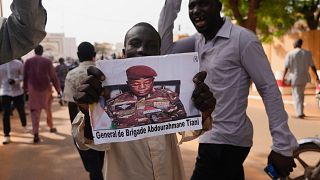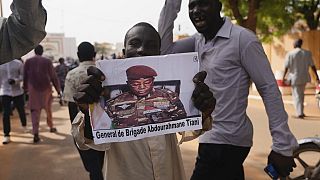Niger
One week after Niger's coup and only days after some of the landlocked West African country's neighbours imposed sanctions to punish the putschists, people are beginning to feel the economic effects.
The countries of the West Africa regional bloc known as ECOWAS imposed trade and financial sanctions to put pressure on the military to return the country to democratic control.
The markets are still full of goods, but shoppers say food prices are already going up.
A resident of Niamey Salamatou Touré said that she used to pay 10,000 CFA ($17) for a bag for rice, but on Wednesday that had already increased to 13,750 CFA ($23).”
"If these (bordering) countries decide to close their borders, frankly there will be an impact on the socio-economic life of Nigeriens," said Abdoul Aziz Seyni, economist at the University of Niamey.
Exacerbating problems, banking operations are mostly shut down, and there were reports that cash machines had stopped dispensing money.











Go to video
Libya devalues currency for first time in four years amid fiscal strain
01:59
Tunisians observing Ramadan turn to snails as meat prices soar
04:04
DR Congo's Goma faces economic and financial crisis following M23 takeover
Go to video
Nigerians outraged as telecom giants hike data prices amid economic hardship
01:04
UN calls for immediate release of former Niger leader Mohamed Bazoum
02:06
Thousands take to the streets to mark Niger's departure from ECOWAS